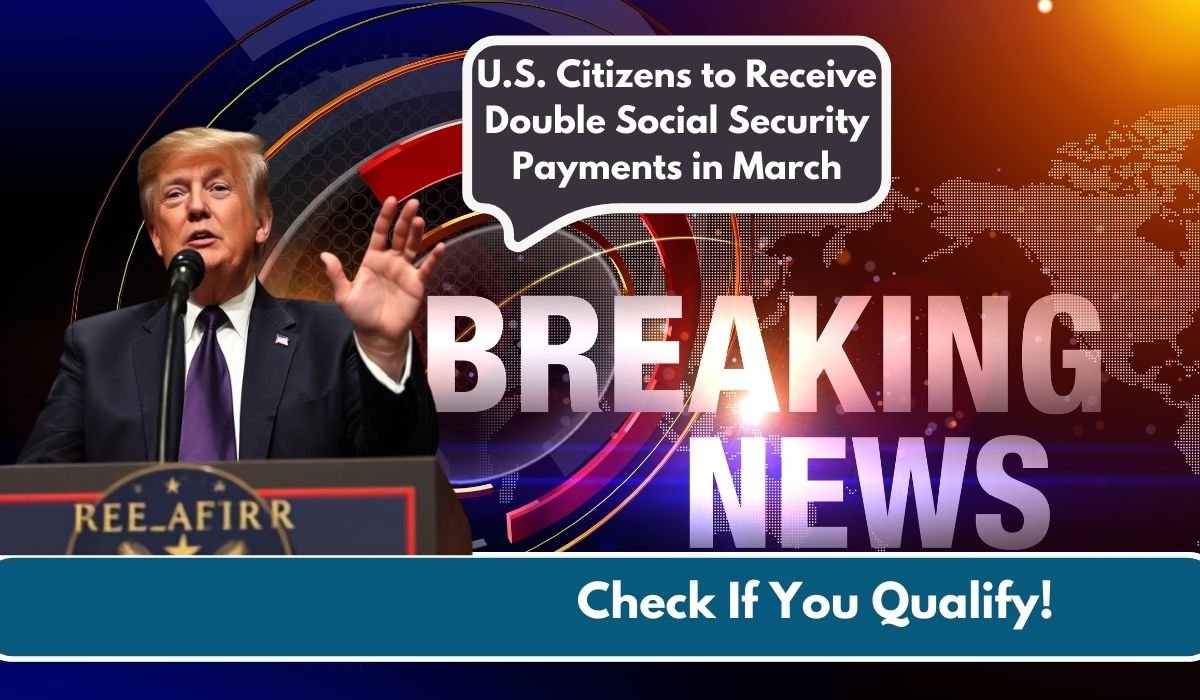Hey there! If you’ve heard the buzz about U.S. citizens getting double Social Security payments in March, you’re probably wondering what’s going on and if you qualify. Let’s break it down in simple terms so you can understand what’s happening and what it means for you.
Why the Double Payments?
In March, some folks will notice two Social Security payments hitting their accounts. But before you get too excited, it’s important to know that this isn’t extra money. It’s all about how the payment schedule works.
When the regular payment date falls on a weekend or holiday, the Social Security Administration (SSA) sends out payments earlier. So, in these cases, you might see two payments in one month, but it’s just the SSA making sure you get your money on time.
For example, if the first of the month is a Saturday, you’ll get that payment on the Friday before. This means you’ll have two payments in one month and none in the next.
Who’s Eligible?
Now, let’s talk about who might see these double payments. This mainly affects Supplemental Security Income (SSI) recipients.
SSI payments are typically scheduled for the first of each month. If that date lands on a weekend or holiday, the payment is sent on the last business day of the previous month. So, in months like March, you could see two payments: one for March and one early payment for April.
But remember, this doesn’t mean you’re getting extra money; it’s just arriving earlier than usual.
Understanding the Payment Schedule
To give you a clearer picture, here’s how the payment schedule works:
| Month | Payment Date | Reason for Early Payment |
|---|---|---|
| January | December 31 (Previous Year) | January 1 is a holiday |
| June | May 30 | June 1 falls on a weekend |
| September | August 29 | September 1 is a holiday |
| November | October 31 | November 1 falls on a weekend |
| January (Next Year) | December 31 (Previous Year) | January 1 is a holiday |
In these instances, you’ll receive your monthly benefit earlier, leading to two payments in one month and none in the following month. It’s the SSA’s way of ensuring you have your funds when you need them, even when the regular schedule is disrupted.
Recent Changes Affecting Social Security Payments
Beyond the scheduling quirks, there have been some significant changes to Social Security benefits recently.
A new law repealed the Windfall Elimination Provision (WEP) and Government Pension Offset (GPO). These provisions previously reduced benefits for individuals receiving pensions from non-Social Security-covered jobs, like many public sector workers.
With their repeal, over 3 million retirees and their dependents are seeing retroactive payments and increased monthly benefits. Retroactive payments began recently, and monthly increases are rolling out over time.
What Should You Do?
If you’re an SSI recipient or affected by the recent changes:
- Monitor Your Payments: Keep an eye on your bank account to track when payments arrive, especially around the dates mentioned above.
- Stay Informed: The SSA will notify eligible individuals about changes and payments. Make sure your contact information is up to date to receive these notices.
- Plan Your Budget: Understanding that some months will have two payments and others none can help you manage your finances better.
Conclusion
While seeing double Social Security payments in your account might seem like a bonus, it’s really just a result of the SSA’s scheduling adjustments to ensure timely payments. By understanding these shifts and staying informed about recent legislative changes, you can better manage your finances and know what to expect from your benefits.
FAQs
Will I receive extra money with these double payments?
No, the total amount you receive over time remains the same. The double payment is due to scheduling adjustments, not additional funds.
How can I find out when my specific payment will arrive?
You can check the SSA’s official payment schedule on their website or contact them directly for personalized information.
Do these double payments affect my eligibility for other assistance programs?
They shouldn’t, but it’s wise to consult with any programs you’re part of to understand how they account for payment timing.
What should I do if I don’t receive my payment on the expected date?
Contact the SSA promptly to report the missing payment and seek guidance on the next steps.
Are these scheduling changes permanent?
No, these adjustments occur whenever payment dates fall on weekends or holidays. It’s an ongoing practice to ensure timely benefit distribution.





